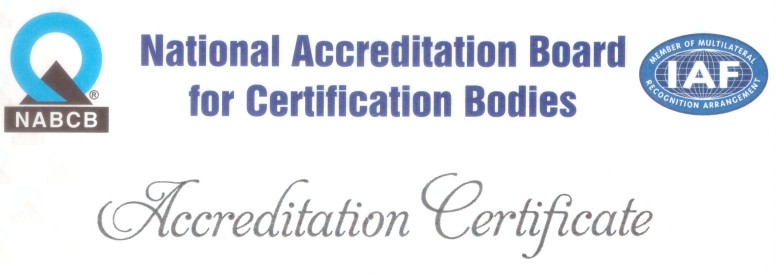October 4, 2024
WTO Statement 9.25.2024


Egyptian authorities require halal certification for imports of meat, poultry and dairy. The text of this requirement was recently changed from ‘certification from a recognized certifier at the export country’ to 'certification under supervision of IS EG Halal Egypt’ which is a state company based in Egypt, not in export countries. Upon inquiry, Egypt advised to adhere strictly to the instructions of the named company in Egypt. This caused confusion as in some cases (not yet in Europe) IS EG Halal Egypt instructs exporters to contact halal certifiers in export countries not recognized by Egypt, resulting in a halal certification that may not be accepted upon arrival of shipment.
Furthermore, a recent Egyptian Customs circular (no.17/2024) required halal certification for all imports of goods of animal origin without excluding dairy, in conflict with Egypt’s notification to the WTO excluding dairy until the end of 2024.
The European Union would like to express concerns with regard to the requirements on Halal certification as of 1 October 2021 based on the Egyptian Halal standard 4249/2014 and also would like to receive information on the latest development as regards the Halal certification in Egypt.
As regards dairy products, the corresponding waiver was extended several times, most recently until 31 December 2024, by the Addendum 7to the relevant notification. We would like to appreciate Egypt’s considerable level of flexibility, which is very helpful to economic operators. At the same time, we would be grateful for information about future plans of Egypt as regards this waiver for dairy.
a. Could Egypt provide information on fees for registration with GOVS and what the timetable is for the launch of the registration? In this respect, could Egypt indicate how many foreign conformity assessment bodies have already applied and/or been registered in line with the Decision No.1 /2023?
As regards the Decision No. 1 of 2023 of the General Organization for Veterinary Services (GOVS) on the Regulating Procedures for Registration of companies granting international conformity certificates for Halal food, the EU appreciates its notification to the WTO in March 2024.
Nevertheless, some of criteria this Decision imposes on conformity assessment bodies seem to be excessive or even discriminatory, such as the requirement to be registered at least in seven diƯerent countries, mandatory address in Egypt, or monthly reporting on certified food facilities.
b. Could Egypt provide information on fees for registration with GOVS and what the timetable is for the launch of the registration? In this respect, could Egypt indicate how many foreign conformity assessment bodies have already applied and/or been registered inline with the Decision No.1 /2023?
In respect to the latest developments of the matter, it seems that the GOVS Decision No.1/2023 has recently been adjusted to provide more powers to the company IS EG Halal Egypt. This company is now supposed to become the entity to supervise certifications by foreign Halal conformity assessment bodies.
c. Can Egypt confirm these changes of the said Decision No.1/2023 and explain what this means in practice? Is the I S EG Halal Egypt to become the single certification or accreditation body for foreign exporters?
The EU would like to remind that the Decision No.1/2023previously did not attribute any role to this company. It is important to highlight that such a step would inevitably lead to less transparency in Halal certification, and most probably also to serious trade disruptions, not mentioning eƯects on the legal certainty for economic operators.
d. Could Egypt provide comprehensive and publicly available guidance to stakeholders, including the list of products to be Halal certified, detailed description of the certification procedure, its duration, costs, and required documents, as well as the process for registration of suppliers?
Answer
In response to the comments and questions raised by the EU and Paraguay , Egypt would like to highlight the following points :
The timeline during which imports of milk and dairy products that are not accompanied by a Halal certificate are allowed to enter into Egypt has been extended until December 31, 2025 and notified to the TBT Committee in document G/TBT/N/EGY/313/Add.8.
The referred to Egyptian Customs Circular No. 17/2024, which requires halal certification for all imports of goods of animal origin, does not apply to dairy products. It addresses imports of meat, poultry and their products. It is evident that there is no confusion with respect to the implementation of this circular and the timeline extension notified inG/TBT/N/EGY/313/Add.7 , given the fact that imports of dairy products not accompanied by a halal certificate have not been denied entry since the issuance of this circular.
GOVS Decision No.1/2023 has not been modified since its notification in document G/TBT/N/EGY/450 and hence concerns over adding any roles to IS EG Halal Egypt are not valid.
On the timetable for the launch of the registration, Halal Certification bodies have been welcome to approach GOVS since the issuance of the Decision No.1/2023 to start their approval and registration process. Information on the registration fees are available at GOVS.
On the request for a comprehensive and publicly available guidance, Egypt is in the process of preparing the necessary technical regulation with respect to halal requirements for dairy products that comprises the product coverage; the role of the relevant entities involved including the halal certification bodies to be approved by the relevant authority. It is also important to stress that the referred to technical regulation shall allow for a transitional period between the issuance of the regulation and its entry in to force to allow producers in exporting countries to duly adapt as per the provisions of the TBT agreement.



